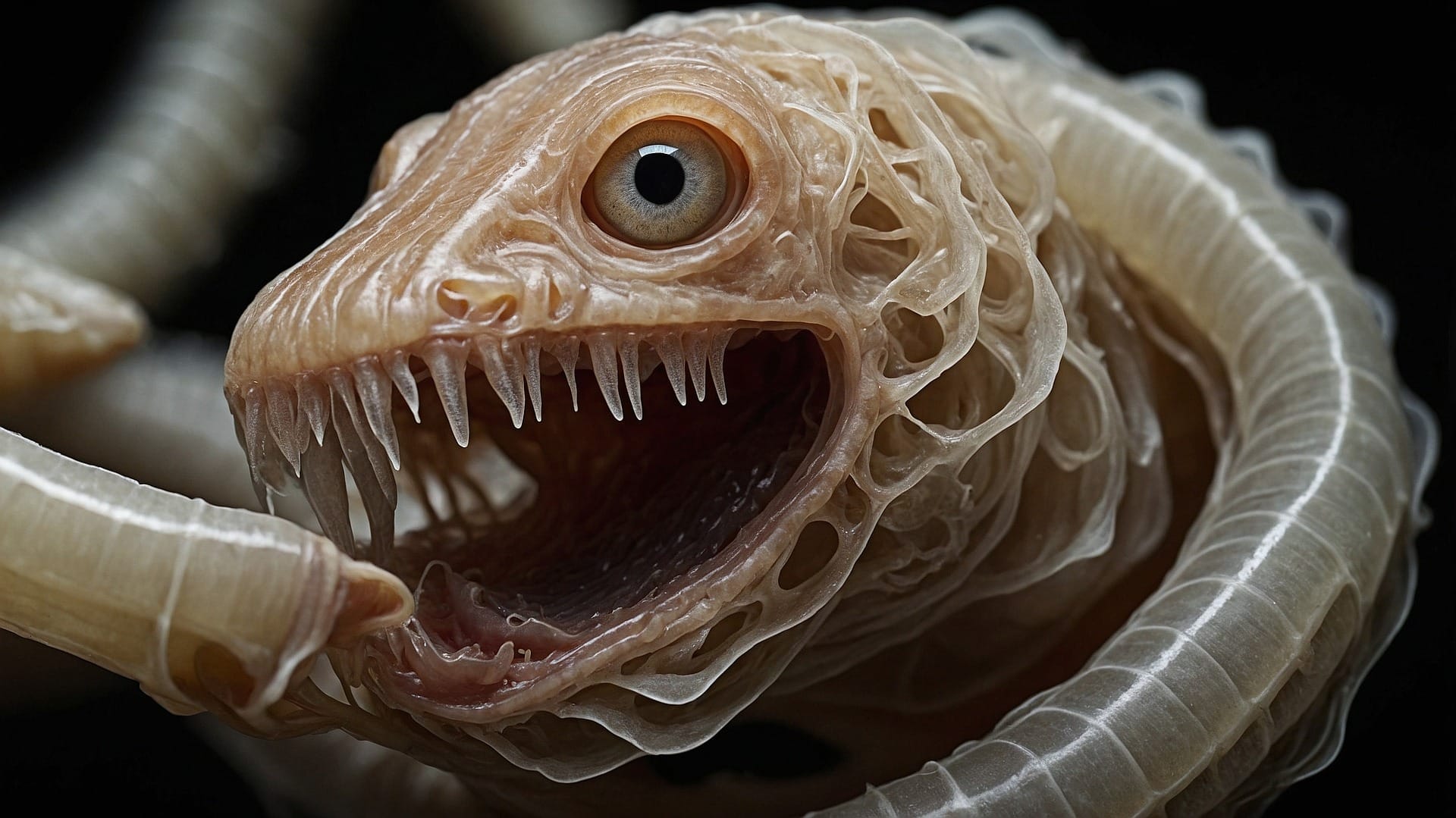According to popular belief, grinding teeth in a dream is a clear sign that the body has parasites. We checked whether this is supported by scientific evidence.
About the direct connection between grinding teeth (bruxism) during sleep and infection worms report numerous sites dental And therapeutic clinics Some do it uncompromisingly, calling bruxism is a specific manifestation of helminthiasis, others are more accurate (for example, one of the largest Russian network clinics “Invitro” does not directly state this, but accompanies article about bruxism with the hashtag “worms”). In popular publication about health “Doctor Peter” there is an article “Constant fatigue, teeth grinding and five more signs that you have parasites.” Notes on the same topic were published "Moskovsky Komsomolets", "Arguments and facts" And "Komsomolskaya Pravda", and in the program "Live Healthy" on Channel One, people who grind their teeth in their sleep, recommended get tested for worm eggs.
Although the word “worms” is often used to describe all parasites, in fact this is not entirely correct. Worms, or helminths, are parasitic worms, which can live in the body of humans, animals and even plants. Their divide into three main groups: roundworms (nematodes, e.g. roundworms, pinworms), tapeworms (cestodes, e.g. tapeworm) and flukes (flukes, e.g. liver fluke).
Infection with such parasites is called helminthiasis (helminthic infestation). This disease is widespread throughout the world, especially among children, due to poor hygiene. By assessment WHO, 1.5 billion people suffer from soil-transmitted helminthiases alone—almost 20% of the world’s population.
Helminthiasis can cause many negative health effects. Infection with worms is common leads to allergic reactions, indigestion, abdominal pain, diarrhea, nausea and anemia. In pregnant women, it also increases the likelihood of having a low birth weight baby, and in infected children it can cause delayed physical and mental development. In addition, parasites can damage internal organs, primarily the liver, lungs and intestines.
Suspect helminthic infestation Can for a number of reasons. Among them are weight loss without changing the diet and level of physical activity, iron deficiency or B12-deficiency anemia, subject to the exclusion of all other causes, itching around the anus that increases at night, etc. At the same time, it is impossible to feel the specific movements of parasites in the abdomen - patients mistake their own peristalsis for them. Exceptions are subcutaneous invasions, or enterobiasis, when pinworm worms crawl out of the rectum.
Bruxism, which occurs more often at night, is formed due to clenching of the jaws as a result of stereotypic movements of the lower jaw. Pathology arises due to various factors, including sleep disturbances and stress, and children suffer from it more often than adults. Bruxism contributes to abrasion and wear of tooth enamel and dentin, damage to metal or ceramic crowns, and can also lead to tooth hypermobility. To minimize the negative impact, mouthguards are used - dental linings made of plastic or silicone, as well as light anti-anxiety medications.
The vast majority of studies, the results of which were examined by “Verified,” do not indicate a cause-and-effect relationship between helminthiasis and bruxism. These scientific works at most show a correlation between the two pathologies. Thus, in 2006, specialists from Venezuela reported, which examined 427 children of preschool and primary school age and identified helminthic infestation in 63.23% of them. Scientists noted that such children were more likely than uninfected children to suffer from perianal itching, enuresis and bruxism, but did not study a cause-and-effect relationship.
But even correlation is not discussed in all scientific works on the topic. In 2008, Brazilian researchers studied stool tests of 57 children aged 6 to 11 years. 30 of them had bruxism, and 27 did not, and the children did not take antiparasitic drugs for at least two months before submitting biological material. The analysis showed that out of 30 patients with bruxism, nine had helminths, and out of 27 without bruxism, 11 had helminths. Scientists concluded that there is no connection between helminthiasis and bruxism.
In 2010, a similar study held in Iran. It involved 50 children with and 50 without bruxism aged three to six years. Intestinal parasites were found in 11 children from the first group and eight from the second. Despite not the most statistically significant differences, the study authors came to the conclusion that parasites may be the cause of bruxism. However, in 2013 the same group of scientists analyzed data from 4964 children and found intestinal parasites in only 15.7% of those who suffered from bruxism. This time, the researchers reported that there was no cause-and-effect relationship between the two pathologies.
It is logical to assume that parasites living in the intestines do not in any way affect the tension of the jaw muscles. However, some scientists have put forward hypotheses about how this is possible. For example, in 2022, researchers from Morocco assumedthat parasites produce nonspecific proteins that have a toxic effect on the nervous system, causing insomnia or teeth grinding in sleep. At the same time, scientists argue, bruxism and helminthiasis may be associated not with each other, but with something third - some factor that causes teeth grinding and contributes to helminthic infestation. Although scientists themselves do not develop this idea, in the case of children, a common root cause may be, for example, thumb sucking - this way parasites can enter the body, and the habit itself, if adults scold the child for it, can cause stress and lead to bruxism.
In the same year, American scientists researched the connection between helminthiases and non-infectious diseases, such as cardiovascular pathologies, asthma, inflammatory bowel diseases, epilepsy, etc. They noted that parasites change the content of neurotransmitters and anti-inflammatory cytokine molecules, and this, in turn, can affect the electrical activity of the brain. As a result, the infected person may develop a tendency, for example, to epilepsy. The study does not mention bruxism, however, since this pathology is multifactorial, the brain may also be involved in its development. However, data on the connection between helminthic infestation and changes in the content of the mentioned substances were obtained only in animals. It is simply incorrect to transfer them to humans; appropriate clinical trials involving humans must first be carried out.
Thus, the cause-and-effect relationship between worm infection and teeth grinding during sleep has not yet been proven. Probably, the idea of such a connection is due to the fact that children are more susceptible to both pathologies. Parasitologist Svetlana Oryshchak explains the reasons for bruxism are as follows: “In most cases, this symptom occurs in young children as a reaction to teething, ear pain, change of environment, overexertion during the day, conflicts and other psycho-emotional circumstances.” Another possible explanation may be that in the case of advanced enterobiasis, pinworm worms crawl out of the anus at night, which can cause itching and discomfort and thereby lead to sleep disturbances (and it definitely does). capable cause bruxism).
Cover image: Image by Pete Linforth from Pixabay
Read on the topic:
If you find a spelling or grammatical error, please let us know by highlighting the error text and clicking Ctrl+Enter.






